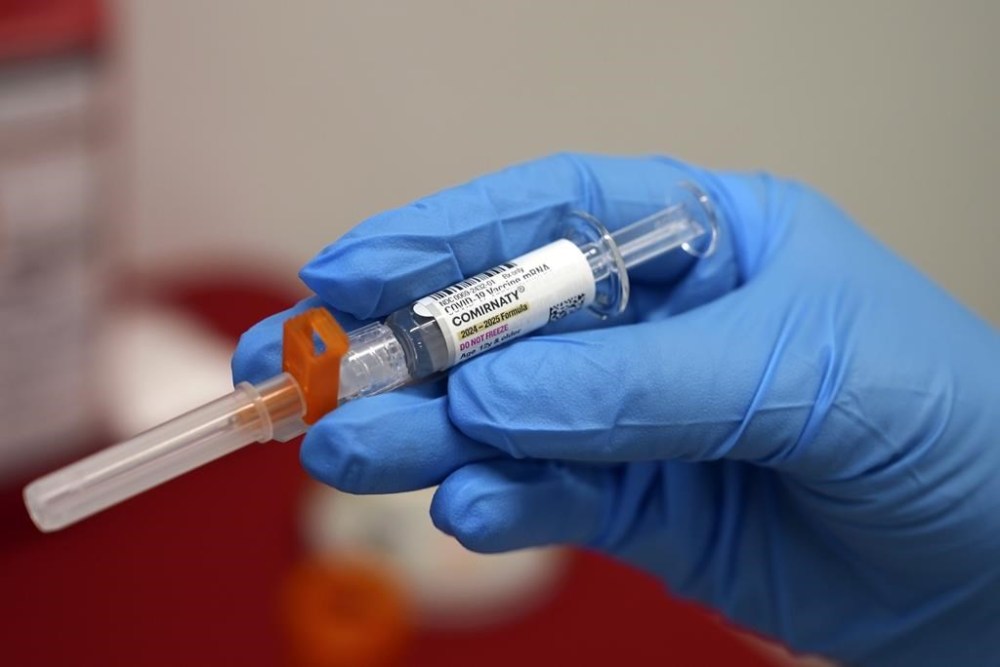Provinces now responsible for buying COVID-19 vaccines as feds issue new guidance
Advertisement
Read this article for free:
or
Already have an account? Log in here »
We need your support!
Local journalism needs your support!
As we navigate through unprecedented times, our journalists are working harder than ever to bring you the latest local updates to keep you safe and informed.
Now, more than ever, we need your support.
Starting at $15.99 plus taxes every four weeks you can access your Brandon Sun online and full access to all content as it appears on our website.
Subscribe Nowor call circulation directly at (204) 727-0527.
Your pledge helps to ensure we provide the news that matters most to your community!
To continue reading, please subscribe:
Add Brandon Sun access to your Free Press subscription for only an additional
$1 for the first 4 weeks*
*Your next subscription payment will increase by $1.00 and you will be charged $20.00 plus GST for four weeks. After four weeks, your payment will increase to $24.00 plus GST every four weeks.
Read unlimited articles for free today:
or
Already have an account? Log in here »
Hey there, time traveller!
This article was published 10/01/2025 (376 days ago), so information in it may no longer be current.
TORONTO – Federal funding for COVID-19 vaccines will stop this year and the provinces and territories will be responsible for buying them, as well as determining the timing of the vaccinations, the Public Health Agency of Canada says.
The agency published the information online on Friday, along with the National Advisory Committee on Immunization’s COVID-19 vaccine guidance for 2025 through to the summer of 2026.
NACI recommended that seniors who are 80 years and older, residents of long-term care homes, and adults and children six months and older who are moderately to severely immunocompromised should get two doses of COVID-19 vaccine per year.

It also recommended that all adults 65 years and older, health-care workers and people at higher risk of severe COVID-19 illness should get one shot a year if they’ve previously been vaccinated.
People considered at higher risk include those with underlying medical conditions; pregnant women; people from First Nations, Inuit and Métis communities; and members of racialized communities, NACI said.
In all cases, the most up-to-date COVID-19 vaccine should be used, it said.
Those who have never received a COVID-19 vaccine can get their first two-dose series any time because the virus that causes the disease — SARS-CoV-2 — is around throughout the year, NACI said.
“Unlike influenza, SARS-CoV-2 has been circulating year-round, without a clear pattern in disease activity,” the advisory committee said.
“However, since 2022, COVID-19 activity has consistently been higher from late summer to early January, coinciding with the fall/winter respiratory season.”
If significant new strains are identified in 2025, health authorities may authorize updates to the COVID-19 vaccine to match, NACI said.
The most recent mRNA vaccines, manufactured by Pfizer-BioNTech and Moderna, target the KP.2 Omicron subvariant.
Novavax’s updated protein-based vaccine targets the JN.1 subvariant of Omicron, but the federal government did not buy any doses, saying the minimum order required was much higher than the Canadian uptake of the Novavax vaccine the previous year.
This report by The Canadian Press was first published Jan. 10, 2025.
Canadian Press health coverage receives support through a partnership with the Canadian Medical Association. CP is solely responsible for this content.
